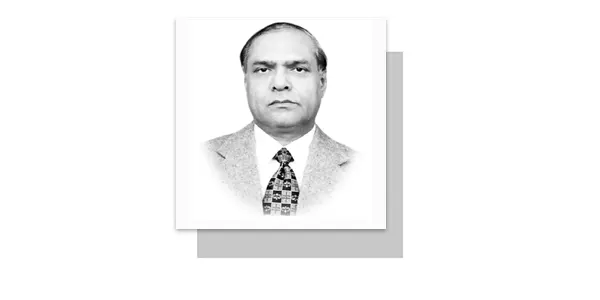IT was widely believed that once in White House again, Trump will stand with European countries as far as their security concerns are concerned.
European leaders believed that Trump will not only strengthen NATO, but acting on the Munich Security conference agenda, will provide moral and material support to them to address their apprehensions.
But what has resulted after the departure of Joe Biden and Trump’s victory, has caused quite an anxiety in the European capitals as they were compelled to call an emergency meeting of the EU in Brussels to discuss Trump’s rhetoric of withdrawing from NATO if the European Union fails to fulfill their commitments.
Hopes have thus dashed and replaced by concerns giving rise to the notion that Europeans have to fend for themselves and that dependence on Trump’s America should be the option far in the back.
After news broke last week about the phone call between Trump and Russian President Vladimir Putin, the EU’s chief diplomat, Kaja Kallas, labelled recent US moves as “appeasement,” and condemned Europe’s (and Ukraine’s) exclusion from any negotiations with Russia.
In Brussels, a week of comments from the administration about the future US military commitment to Europe and, in particular, the European Union’s supposed anti-democratic tilt has left a deep mark.
Can Washington really mean these things—about Ukraine, about Europe?
How can Trump undercut joint positions and his own leverage vis-à-vis Putin?
Is the United States still an ally?
Many in Brussels understand some nuances in the US position, but generally, the more productive comments from administration officials about the need for consultations with allies have been completely overshadowed.
Now, with Trump blaming Ukraine for the war, Brussels’ shock and dismay are cemented.
These feelings are fair, but there shouldn’t be any surprise.
Europe had months to prepare for expected disruption from the Trump administration.
And it certainly should brace for more.
Most importantly, though, what Europe needs to do hasn’t changed: Europe must strengthen its own leverage with Putin and Trump alike.
That means taking the lead as the guarantors of Ukraine’s security in the future and standing up a credible offer—including with European forces in Ukraine—to enforce a durable solution in Ukraine.
The EU’s role in this effort is difficult.
Decisions made at the EU level on foreign and security policy are made with unanimity.
That will be a challenge, especially when quick action is required, while countries like Hungary under Trump ally Viktor Orbán play spoiler or the regular consultative process leads to wasted time.
Critical decisions about troop deployments or military action will also come from individual member states, not the EU.
But the EU has a role to play.
It can push members to provide more assistance, especially military assistance, to Ukraine.
It can also embrace the financial tools at its disposal to spur greater production, military spending and defense-industrial cooperation.
These efforts are already at work, but must be finalized quickly.
And these moves themselves are unlikely to convince Washington of Europe’s agency.
Trump’s negotiation posture with Russia is failing to respect French President Emmanuel Macron and other European leaders’ view of Russia as an “existential threat.
” Macron, among other Europeans, has made it clear that while Europe supports peace, it will not endorse an unjust and fragile deal between Russia and the United States that would undermine Ukrainian and European security—especially one that would not have Ukraine, Europe, Turkey, or Canada at the negotiating table.
This is a moment of reckoning for France, which now claims victory in the argument for European “strategic autonomy.
” Regardless of US actions, Paris views Russia as an existential threat due to its military build-up and efforts to weaken Europe.
Facing budget constraints and a leadership crisis, Macron warns of societal and economic sacrifices.
Meanwhile, Trump’s shift on Ukraine and talks with Russia have placed Berlin in a strategic bind.
While London and Paris explore a European force for peace, Berlin avoids hard choices.
Chancellor Scholz and his likely successor, Friedrich Merz, reject discussions on European troop deployments, while Vice Chancellor Robert Habeck deems Germany’s role an abstract question.
Political elites fear debates on war, conscription and military spending could trigger public backlash.
Despite leading military and financial aid to Ukraine, Germany faces mounting pressure to sustain support and bolster its own defence amid shifting US policies.
Uniquely for Germany, however, Trump’s US policy shifts and rapprochement with Russia poses a fundamental challenge to pillars of Berlin’s strategic and security posture.
Lacking both the nuclear deterrent and the strategic culture of France or the United Kingdom, Germany is more dependent on the United States than its European peers.
What’s more, Scholz doubled down on Berlin’s reliance on Washington during the last four years under his “friend” President Joe Biden, often at the expense of Franco-German or European alternatives or back-up options.
Government and opposition parties alike know that the Bundeswehr remains in a sorry state of readiness, which will not allow the next German leadership to make any sizeable contributions to a European force, even if it mustered the political will to do so.
Germany has emerged as Europe’s largest military and financial supporter of Ukraine.
In the absence of continued US assistance, Berlin will have to maintain, if not step up, that support to strengthen Ukrainian deterrence, not least in order to buy itself more time for inevitable rearmament.
The next German chancellor will have the unenviable but likely unavoidable responsibility of explaining to the German public why and how it will have to fund massive military modernization for its own security.
After the Russia shock to German energy supply in February 2022 and the China shock to its automobile sector of 2024, it seems that 2025 will bring an American shock to its security and strategic reliance on the United States.
—The writer is Former Civil Servant and Consultant (ILO) & International Organisation for Migration and author of seven books. (mughal_rashid@hotmail.com)









